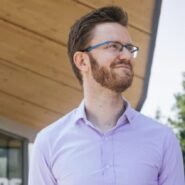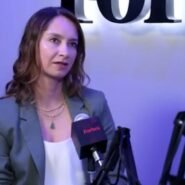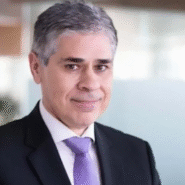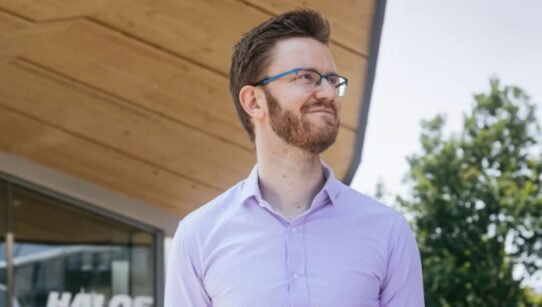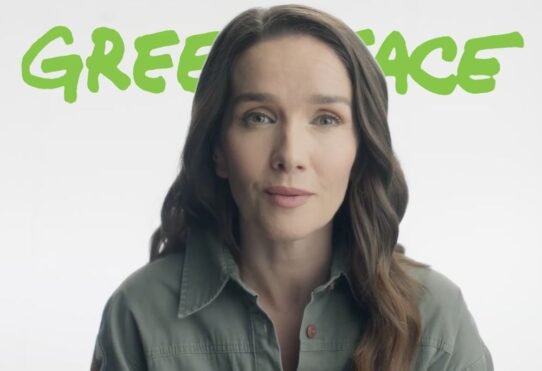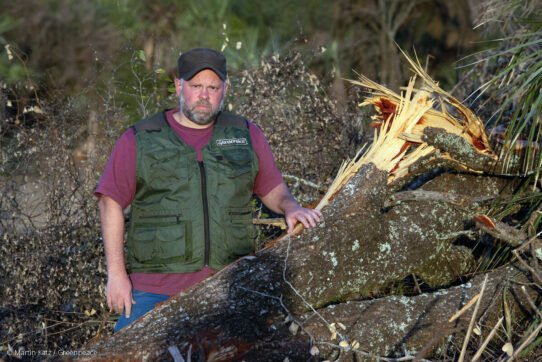Matías Asún is the campaigns director of Greenpeace Chile, Colombia, and Argentina, and he seeks to transform environmental activism. His approach merges the defense of biodiversity with a strong social perspective, framing it within the fight for human rights.
Greenpeace is an organization rooted in the defense and protection of the environment, integrating social justice and human rights into its actions. A significant part of this vision is driven by Matías Asún, the campaigns director for the region that includes Chile, Argentina, and Colombia.
Matías Asún of Greenpeace and his perspective on the role of environmentalism in activist leadership
In each campaign, he promotes activism that is both creative and strategic, far from violence. Asún believes in backing every action with research and data produced by specialists, to counter what could harm the planet. Of course, part of the action is keeping the general public informed on these matters.
In doing so, he fosters regional and international collaboration in the fight against environmental problems, seeks a commitment to sustainable practices, and never loses sight of the goal: to build a more just and sustainable future.
His leadership is fundamental in facing today’s environmental challenges, where the link between the ecological crisis and social inequalities is becoming increasingly clear.
Why a regional campaigns director?
At a crucial moment for the planet, the area led by Matías Asún is key. This year at the IEFA Latam Forum it was stated: vast regions, rich in life and natural resources, put ecosystems in the spotlight—not just for extractive businesses and unscrupulous powers, but for all who understand the value of their protection for the future of humanity.
That is why his mission is to inspire new generations, encouraging them not only to denounce but to actively engage in concrete actions that contribute to environmental conservation and promote a fairer, more sustainable future. And why not? To frame these struggles as inseparably linked to human rights.
At this point, the region—with all its ecological and cultural diversity—needs committed environmental activism more than ever, where the defense of ecosystems becomes inseparable from the fight for the rights of local communities.
A long-standing activist
Asún, formally the director of campaigns and programs for Greenpeace in the region, is a psychologist with a master’s degree in sociology. His life is marked by social and environmental justice. Since childhood, influenced by his parents—both psychologists with a deeply humanist vision—he was raised as an activist. Through them, he maintained constant contact with the social and political reality of his country during the democratic recovery and their involvement in social programs.
«Since I was a kid, they raised me to be an activist… issues of injustice and poverty always worried me deeply,» Asún recalls, reflecting a critical stance toward certain social realities in his country. This early exposure to political action led him down an academic and professional path where community psychology and social work became true passions. These passions helped him confront environmental destruction, even though the university context at the time was focused on psychology for marketing and human resources.
Self-taught and community-driven
Although his initial training in psychology took place at Diego Portales University—at a school founded by his father, among others—Matías quickly realized he would not follow traditional clinical psychology models. Instead, he leaned toward community work and social research, seeking to transform the reality of the most impoverished sectors.
In his own words, “I personally brought together professors to create a focus area that didn’t exist at the time, and added socially oriented psychology courses to the curriculum.” It wasn’t easy, but it paid off when he chose to pursue a specialized path not aligned with prevailing university trends.
During those years, his dedication went even further: he created an online community work network that grew to 67,000 members and revolutionized the labor market for workers in Chile. «It was LinkedIn before LinkedIn,» he says with a smile. His obsession was helping others, connecting people, and pushing forward good causes to improve lives.
Greenpeace and a leader’s power to spotlight causes
Asún’s approach caught the attention of colleagues and experts who invited him to join Greenpeace. Despite not having formal education in ecology or environmental sciences, his humanist perspective and networking skills allowed him to lead major environmental campaigns.
Through Greenpeace, he connected with organizations, scientists, and activists worldwide, championing critical causes for the preservation of Latin America’s ecosystems.
“I believe Greenpeace is a tool for people to come together and achieve concrete changes that benefit the environment and its increasingly complex challenges filled with conflicting interests. My job is to make sure relevant voices are amplified,” says Asún about his role.
Today, as campaigns director, he coordinates initiatives in Argentina, Chile, and Colombia to safeguard the biodiversity of the most biodiverse continent on the planet. «Without desert, the coast isn’t the same. Without glaciers, rivers don’t exist,» he says firmly, highlighting the interdependence of the region’s ecosystems.
Leadership rooted in collective work
Matías Asún’s leadership clearly demonstrates how the power of collaboration and collective commitment can drive substantial change.
At Greenpeace, Asún sees himself as a facilitator: “It’s not about knowing everything; it’s about providing the tools and networks to those who do, so they can apply their knowledge. It’s about visibility and amplification.”
His ability to listen and surround himself with experts is one of the pillars of his success. He also rejects individual glorification, always prioritizing teamwork and creating spaces where everyone involved can contribute knowledge and experience.
This transformative, socially focused vision of leadership enables him to organize large campaigns and mobilizations. «My job is to enable those who know the most and can do the most,» he asserts. This perspective leads Greenpeace to use technology as a tool for social mobilization, strengthening the connection between individuals and communities in the fight against social and environmental injustices—and giving a strong, clear voice to just causes.
Commitment to climate justice
Despite the current global political tensions, the director remains optimistic about people’s power to change the course of history. “Organizations like Greenpeace can be seeds of hope in a dark world,” he says. With this hopeful perspective, he and his team develop campaigns that call for biodiversity protection while sparking deep reflection on production and consumption models that are depleting natural resources.
“The problem isn’t that a tree gets cut down. What worries us is that it happens today with no consequences and no one raises their voice,” he says, criticizing the structures that allow ecosystem destruction to go unchecked.
A future where democracy and nature are respected
For Matías Asún, the solution to the climate and social crisis lies in revaluing democratic coexistence and respect for nature. With a critical view of economic policies and companies that prioritize profit over sustainability, he states: “If I charged coal-based energy companies for the full health costs they cause, we’d have solar panels across the country tomorrow.”
Through Greenpeace, Asún continues to fight for a future in which political and corporate decisions align with equity, social justice, and environmental protection—aiming to transform the system for a future where humanity and nature can coexist.
In times of democratic setbacks, criminalization of social organizations, and environmental collapse, Asún doesn’t present himself as an expert, but as a catalyst. He believes in informed public opinion, digital organization, and above all, conviction over title.
To him, Greenpeace is not a brand or a moral shelter—it’s a pressure tool. A megaphone for people who refuse to give up. In this way, he continues to believe in a timeless and revolutionary idea: the world can be different if we come together. And for that, we must act, disrupt, and transform.
